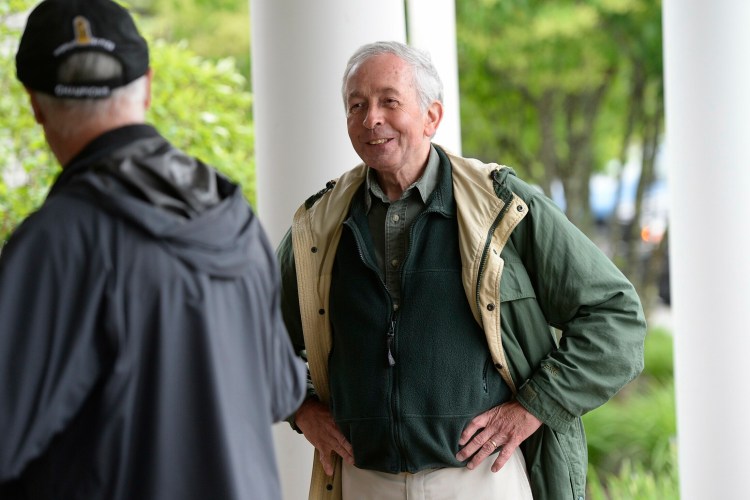Democrat Stephen Moriarty won a special election Tuesday for a state House seat representing Cumberland and part of Gray.
Moriarty won with 62 percent of the votes cast in Cumberland and part of Gray, defeating Republican Kevin Hughes.
The election in House District 45 was to replace Dale Denno, a Cumberland Democrat who resigned in March and died in April of lung cancer. He had disclosed his illness the previous summer, said he would serve as long as he could and was elected to a second term in the House in November.
Moriarty will complete Denno’s term, which runs until December 2020.
Moriarty carried Cumberland comfortably, winning 1,221 to 757, and that town has the majority of voters in the district. Turnout was low, with 1,982, roughly 28 percent, of Cumberland’s 7,006 registered voters going to the polls. In the Gray portion of the district, Moriarty had 68 votes and Hughes had 47.
Moriarty has served for more that two decades on Cumberland’s Town Council and has been a member of the town’s Planning Board for the last four years. He also served one term in the Maine House in 2012, but said the position made it hard for him to balance public service and a career, so he didn’t run for re-election.
Moriarty retired from his law firm late last year and said that would allow him to devote more time to being a lawmaker.
During the campaign, he advocated shifting the state away from use of fossil fuels and toward developing clean sources of energy, which he said would also create quality jobs. He also supports education and economic development, but said the state should be wary of using its rainy day funds.
Maine needs to be “very cautious with dipping too deeply into reserves or excess sources of revenue” to protect the state in case the economy softens.
Hughes, who also lives in Cumberland, was making his first attempt at public office. He runs a family custom apparel decoration and branding business and said that both of his children are now in college, giving him more time to contribute to the community by serving as a state representative.
His background running a small business made him a fiscal conservative, he said, and he had hoped to rein in spending and restrain taxes if elected.
Hughes said he is “a little afraid of all the spending that’s going on (in the Legislature, and) our taxes going through the roof.”
He also voiced a concern about the possibility of an economic slowdown and the impact on state finances if that occurs.
“Where’s this money going to come from?” he said. “We’re going to have to reel it in just a little bit. We can’t give everything away.”
Send questions/comments to the editors.



